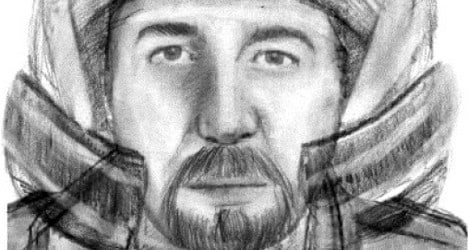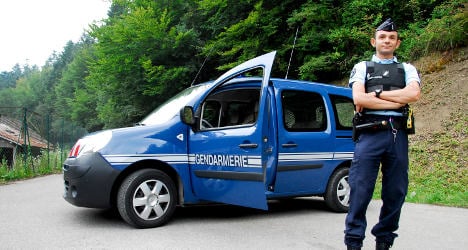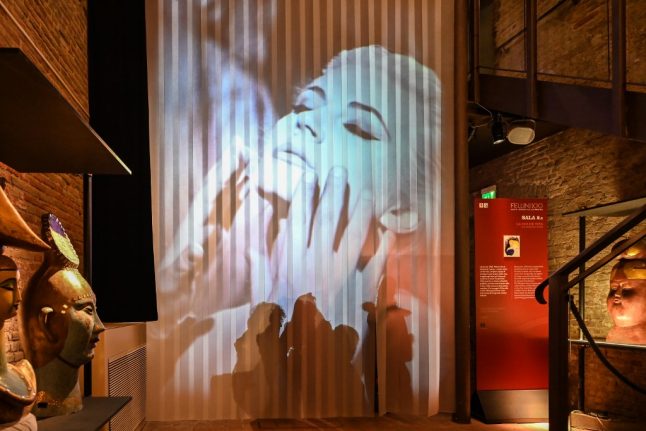French police investigating the murder of a British-Iraqi family admitted on Monday that despite receiving around 100 calls from the public, not one had led to any kind of break in the probe.
Saad al-Hilli, a British national originally from Iraq, was gunned down in September 2012 along with his wife and her mother in a woodland car park close to the village of Chevaline in the hills above Lake Annecy.
His two daughters survived the gruesome attack but French cyclist Sylvain Mollier, apparently an innocent bystander, was also killed.
On November 4th, police in Annecy released this sketch of a mysterious motorcyclist seen by witnesses near the site of the shooting, hoping it would provide a breakthrough in the case.

Witnesses gave a description to police of the motorcyclist early on in the case, but it was not initially released for fear he would go into hiding.
Investigators had hoped that the helmet depicted in the sketch would prove a fruitful avenue of inquiry, since it is a rare model, used by French police during the 2000s, with only 8,000 made in black, as seen by witnesses.
Speaking on Monday, however, Annecy prosecutor Eric Maillaud told TF1 television: “The appeal for witnesses hasn’t yielded anything of interest up to this point.”
“We’ve had nearly 100 calls, some of them from abroad, but nothing that has provided information that would be a break in the case in one direction or another,” he added.
Maillaud also noted that many of the “leads” from members of the public had turned out to be frivolous.
“In particular, we’ve had some silly calls from people recognizing their neighbour or caretaker or a local police officer,” he said.
Furthermore, the local prosecutor, who heads the investigation being conducted in collaboration with British police, announced there would be no further public appeals for help in solving the case.
“Insofar as time is passing, we know that we’ll be getting fewer and fewer calls, and eventually none at all,” Maillaud said on Monday.
“The work is continuing, but the chances of tracking down this helmet are dwindling, that’s for sure,” he added.
“We’ve known for a while that this would be a long and complicated investigation. But as long as there is physical evidence to be explored, the probe will continue,” said Maillaud.
SEE ALSO: Alps murders – cops still stumped, one year on
In March, Maillaud admitted to The Local that the inquiry may never reach a definitive conclusion.
“Of course it is possible we will never find them, but it’s too early to conclude that,” Maillaud said at the time. “It’s out of the question that we will be thinking like that now.”
Despite the lack of a definitive theory as to a motive for the murders, investigators have concluded that Mollier was not a target and died because he had the misfortune to arrive on the scene at the wrong time while out cycling.
A theory that the attack could have been the work of a lone psychopath also seems to have been dismissed.
Instead, the investigation had focused increasingly in recent months on the possibility that the slaying had its origins in a dispute between one of the victims, Saad al-Hilli, and his brother Zaid, over a family inheritance.
Maillaud has described the financial dispute as involving several million euros.
He said in June that investigators were trying to track the destination of calls made to Romania from Zaid al-Hilli’s home phone in the weeks prior to the attack.
Shortly after that revelation, Zaid al-Hilli was arrested by British police and questioned on the basis of suspicion of conspiracy to murder.
He was subsequently released without charge but then placed under bail pending further enquiries.






 Please whitelist us to continue reading.
Please whitelist us to continue reading.
Member comments